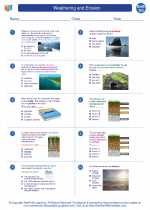Aquatic Environments
An aquatic environment refers to any water-based habitat, including oceans, rivers, lakes, ponds, and wetlands. These environments are home to a wide variety of plants and animals, each of which has adapted to thrive in the unique conditions of their aquatic home.
Types of Aquatic Environments
There are two main types of aquatic environments: marine and freshwater.
- Marine Environments: Marine environments are saltwater habitats, including oceans and seas. They are characterized by high salinity, tides, and a diverse array of marine life, such as fish, sea turtles, and coral reefs.
- Freshwater Environments: Freshwater environments include bodies of water with low salinity, such as rivers, lakes, and ponds. They support a different set of aquatic organisms, including freshwater fish, amphibians, and aquatic plants.
Characteristics of Aquatic Environments
Aquatic environments have unique characteristics that distinguish them from terrestrial habitats:
- Salinity: The salt content of the water in marine environments affects the types of organisms that can live there.
- Temperature: Water temperature can vary widely in different aquatic environments, influencing the distribution of species and the rate of biological processes.
- Light Availability: Light penetration in water is limited, affecting the photosynthetic activity of aquatic plants and algae.
- Water Depth: Depth can impact the types of organisms present and their adaptations to pressure and light availability.
- Flow Rate: The speed of water flow in rivers and streams can influence the distribution of species and the physical characteristics of the habitat.
Ecological Importance
Aquatic environments play a crucial role in the Earth's ecosystems. They support a diverse array of life and contribute to essential ecological processes, including nutrient cycling, carbon sequestration, and the regulation of global climate patterns.
Study Guide
Here are some key concepts to focus on when studying aquatic environments:
- Identify and describe the major types of aquatic environments.
- Explain the key characteristics that distinguish marine and freshwater environments.
- Discuss the adaptations of aquatic organisms to their specific habitat conditions.
- Explore the ecological importance of aquatic environments and their role in sustaining life on Earth.
- Compare and contrast the biological and physical features of different aquatic ecosystems.
Understanding aquatic environments is essential for comprehending the interconnectedness of Earth's diverse habitats and the importance of conservation efforts to protect these vital ecosystems.
[Aquatic] Related Worksheets and Study Guides:
.◂Earth Science Worksheets and Study Guides High School. Weathering and Erosion

 Worksheet/Answer key
Worksheet/Answer key
 Worksheet/Answer key
Worksheet/Answer key
 Vocabulary/Answer key
Vocabulary/Answer key
 Vocabulary/Answer key
Vocabulary/Answer key
 Vocabulary/Answer key
Vocabulary/Answer key
